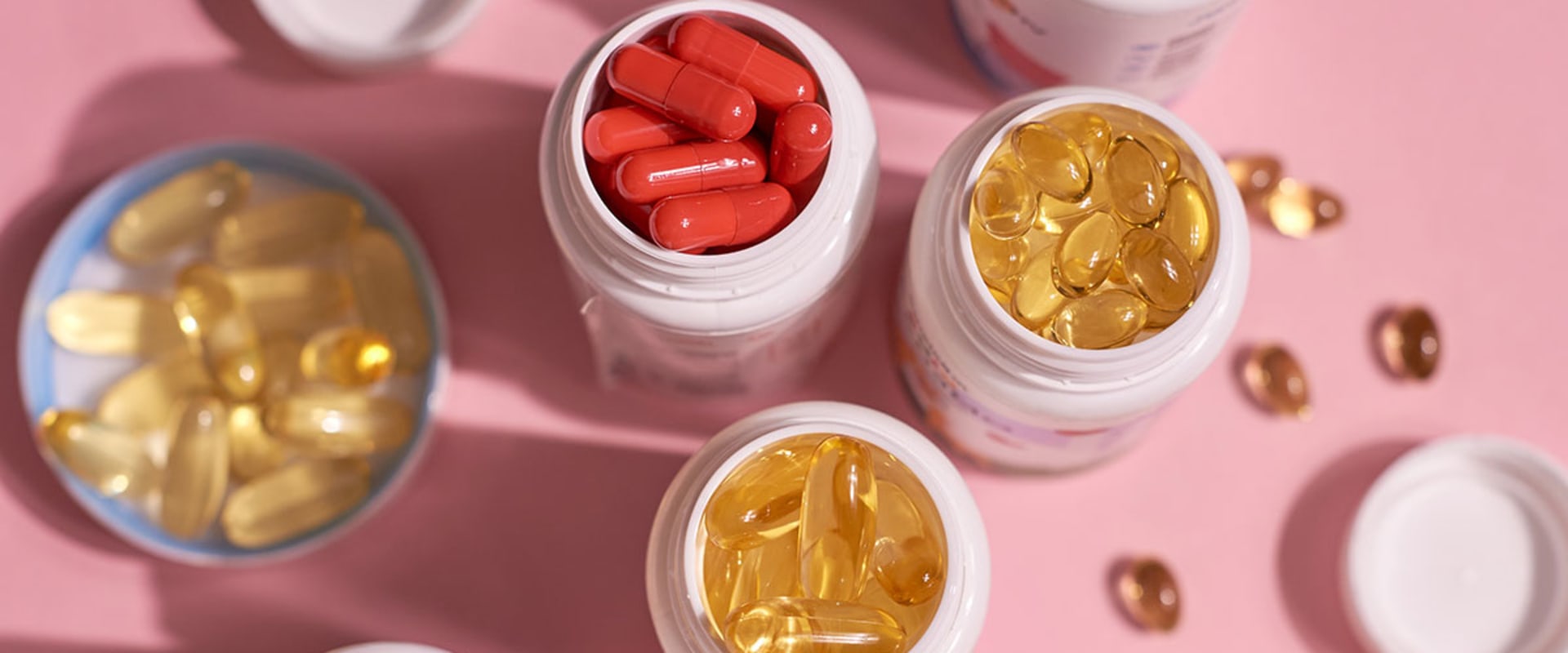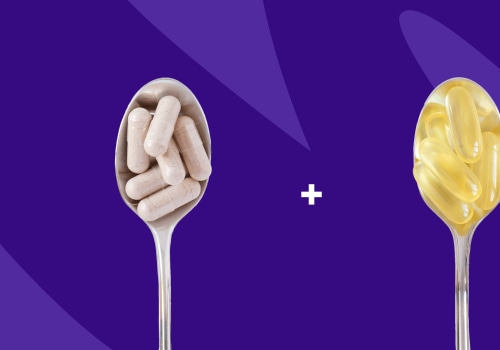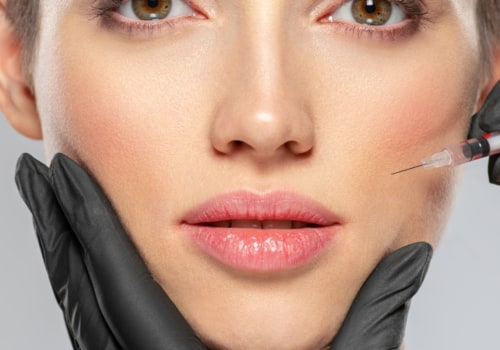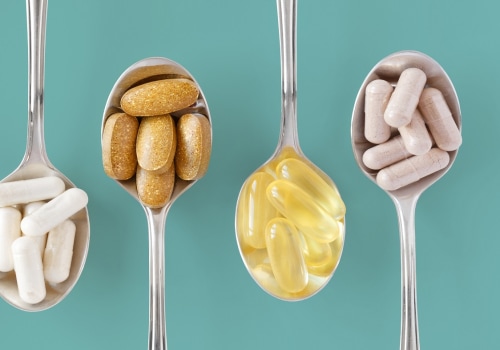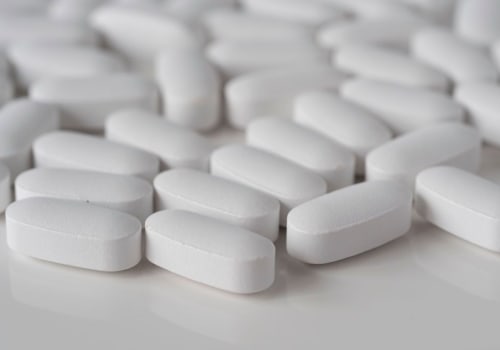Vitamin E Vitamin E, also known as tocopherol, is one of the best anti-aging vitamins. It is essential for numerous bodily processes and systems, such as vision, the immune system, the regulation of inflammation, brain health, etc. Vitamin E is vital for older adults because it plays an important role in maintaining skin health. Here are 14 supplements that can help slow the effects of aging.
A process called cellular senescence occurs when cells stop dividing. As we age, senescent cells accumulate, which is thought to accelerate aging and disease progression (2,. Research shows that curcumin activates certain proteins that help delay cellular senescence and promote longevity (4,. In addition, animal studies show that curcumin combats cell damage and significantly increases life expectancy.
This compound has been shown to postpone age-related diseases and also alleviate age-related symptoms (5, 6,. You can increase your curcumin intake by using fresh or dried turmeric in the kitchen or by taking turmeric or curcumin supplements. Curcumin is the main active compound in turmeric. It can slow aging by activating certain proteins and protecting against cell damage.
EGCG may work by restoring mitochondrial function in cells and acting on pathways involved in aging. It also induces autophagy, the process by which the body removes damaged cellular material (1). In addition, there may be an association between green tea intake and protection against skin aging), as well as a reduction in hyperpigmentation caused by ultraviolet (UV) light (13, 14, 1.In addition, a review suggests that daily intake of green tea may suppress brain aging by activating nerve cells and reducing stress (1). Some research suggests that collagen supplementation may reduce signs of aging), including wrinkles and dry skin (1).
Other human studies show that collagen supplements can improve skin elasticity, reduce wrinkles, increase skin hydration, and improve nail growth (1). While these results are promising, many of these studies are funded by companies that manufacture collagen products, which may influence the results of the studies.). There are many types of collagen supplements available, including powders and capsules. Collagen is a popular dietary supplement that can help prevent skin aging by increasing collagen levels in the skin.
Coenzyme Q10 (CoQ) is an antioxidant that the body produces. It plays an essential role in energy production and protects against cell damage (1). Research suggests that CoQ10 levels decline as we age.). Supplementation has been shown to improve certain aspects of health in older people.
CoQ10 supplements may work by reducing oxidative stress, a condition characterized by an accumulation of free radicals that accelerate the aging process and the onset of age-related diseases (20). In addition, CoQ10 supplements may benefit heart health by reducing artery stiffness, lowering blood pressure, and preventing the buildup of oxidized cholesterol in the arteries (2). CoQ10 is an antioxidant that the body produces naturally). Its supplementation may delay age-related physical decline and improve the quality of life of older adults.
NAD+ is found in every cell in the body and is involved in many critical processes, such as energy metabolism, DNA repair, and gene expression (22, 2). In addition, research suggests that the NAD+ precursors, NMN and NR, help restore NAD+ levels and cellular changes associated with age (2). A 21-day study in 12 men with an average age of 75 years showed that supplementing with 1 gram of NR per day increased NAD+ levels in skeletal muscle and reduced levels of inflammation). proteins.
However, these results may be hampered by a conflict of interest (2) While these results are promising, more human research on NR and NMN is needed (2) Human and animal studies have shown that crocin offers many health benefits, including anticancer, anti-inflammatory, anxiolytic, antidepressant, and antidiabetic effects. It may also protect against age-related cognitive decline (28, 2). Test tube and rodent studies show that crocin helps prevent age-related nerve damage by inhibiting the production of advanced glycation end products (AGEs) and reactive oxygen species (ROS), which are compounds that contribute to the aging process (30, 3.Crocin has also been shown to help prevent aging in human skin cells by reducing inflammation and protecting against cell damage induced by UV light (32). Vitamin C works as a powerful antioxidant in the body, helping to protect cells from oxidative damage.
It also plays an important role in immune function, the regulation of inflammation, and many other processes that are essential for healthy aging (3). For example, in a study of 80 adults with an average age of 60, people with higher blood levels of vitamin C performed better on tasks related to attention, concentration, memory, decision-making, recall, and recognition (3). Vitamin C is also essential for skin health.). Supplementation can improve skin hydration, stimulate collagen production, and protect against wrinkle development and premature aging due to sun exposure (3).
Some evidence suggests that older adults need more of this vitamin than young adults to maintain health during the aging process) (3). Some research indicates that L-theanine supplementation may help improve brain function in middle-aged adults and protect against age-related liver dysfunction, oxidative stress, and inflammation (40, 41, 4). Several animal studies suggest that diola may help promote longevity. However, more research in humans is needed (43, 4).
It can help fight aging by reducing oxidative stress, promoting immune function, preventing cell damage, and activating telomerase, an enzyme that maintains telomere length) (45, 4.Studies in rodents suggest that it may reduce the number of senescent cells in tissues, extend lifespan, and protect against brain aging (47, 4). Animal studies indicate that this compound may increase life expectancy, but human research is needed (4). Recent studies have found that sulforaphane increases the life expectancy of roundworms and prevents age - associated heart problems in mice (50, 5). Curcumin, collagen, CoQ10, crocin, and vitamin C are just a few of the substances that have been shown to have age-supporting effects).
Turmeric is a traditional Indian spice with a powerful compound called curcumin. These are the top 10 health benefits of turmeric and curcumin. Consuming collagen can have a variety of health benefits, from relieving joint pain to improving skin health. These are the 6 main benefits of collagen.
Vitamin C is the most common antioxidant found in the skin. It is also found in vegetables and citrus fruits. Like vitamin E, vitamin C is considered important for repairing free radicals and preventing them from becoming cancerous or accelerating the aging process. Lower amounts of the supplement are required because of the greater potency of anti-aging supplements.
Vitamin C supplements mediate the body's natural collagen production and thus improve visible signs of aging, such as fine lines and wrinkles. Hormone supplements, including estrogen, progestins, and vitamin D, are useful for delaying or reversing the onset of aging. Anti-aging supplements benefit women in particular, as they improve hydration and skin tone and control skin and body diseases related to aging, including visible signs of aging, arthritis, and cardiovascular disease. Anti-aging supplements, in addition to other anti-aging measures, have been developed to delay or reverse skin damage during the onset of skin aging.
In fact, some vitamins and supplements have anti-aging properties, the ability to slow down the biology of the aging process. Common anti-aging supplements include collagen supplements, green tea extract supplements, curcumin phytosome supplements, nicotinamide mononucleotide supplements, vitamin E supplements, vitamin C supplements and optimized saffron supplements. .
